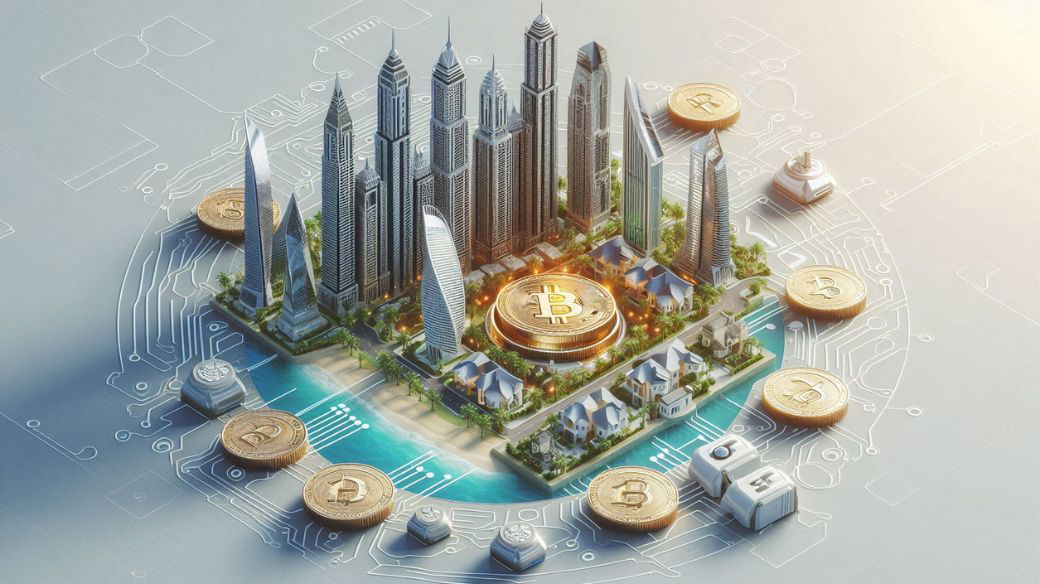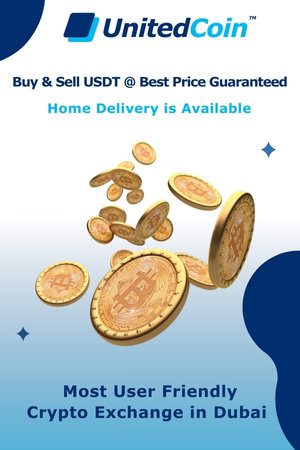Dubai, renowned for its opulent skyline and luxurious lifestyle, is at the forefront of a revolutionary shift in the real estate market. The advent of cryptocurrency is transforming how high-value property transactions are conducted, offering a new and innovative way for investors to engage with Dubai’s luxury real estate. This article delves into the cryptocurrency revolution in Dubai’s property market, examining the driving forces, benefits, challenges, and future prospects of this digital transformation.
Dubai’s Luxury Real Estate Landscape:
Dubai’s luxury real estate market is synonymous with grandeur and innovation. The city boasts iconic developments such as the Burj Khalifa, Palm Jumeirah, and Dubai Marina, attracting affluent investors from around the globe. With its tax-free environment, strategic location, and cosmopolitan lifestyle, Dubai remains a top destination for luxury property investments. The market is characterized by high demand for exclusive properties, world-class amenities, and cutting-edge architectural designs.
The Emergence of Cryptocurrency:
Cryptocurrencies like Bitcoin and Ethereum have disrupted traditional financial systems, offering decentralized and transparent methods of value exchange. Dubai’s progressive stance on technology and innovation has facilitated the integration of digital currencies into its real estate sector. As a result, a growing number of luxury developers and investors are exploring cryptocurrency transactions, marking a significant shift towards digital finance in real estate.
Benefits of Cryptocurrency in Real Estate Transactions: The adoption of cryptocurrency in Dubai’s luxury real estate market provides numerous advantages:
Transparency and Security: Blockchain technology ensures transparent and secure transactions, reducing the risk of fraud and enhancing trust between parties.
Efficiency: Cryptocurrency transactions are faster and more efficient compared to traditional banking methods, enabling quick settlements and reducing transaction costs.
Global Accessibility: Cryptocurrencies facilitate seamless cross-border transactions, allowing international investors to participate in Dubai’s real estate market without the hassle of currency conversions and international wire transfers.
Investment Diversification: Digital currencies offer a new avenue for investors to diversify their portfolios by incorporating real estate assets.
Key Trends and Developments: Several trends and developments are shaping the integration of cryptocurrency into Dubai’s luxury real estate market:
Acceptance of Cryptocurrency Payments: Luxury developers and real estate agencies are increasingly accepting cryptocurrencies as payment for property purchases, catering to a tech-savvy and globally dispersed clientele.
Blockchain for Property Management: Blockchain technology is being utilized for property management, title transfers, and asset tokenization, streamlining processes and enhancing efficiency.
Tokenization of Real Estate: The tokenization of real estate assets allows fractional ownership, enabling smaller investors to invest in high-value properties through digital tokens.
Challenges and Considerations: While the integration of cryptocurrency in real estate presents significant opportunities, it also poses challenges:
Regulatory Uncertainty: Regulatory frameworks for cryptocurrency transactions in real estate are still evolving, creating uncertainty for investors and developers.
Price Volatility: The inherent volatility of cryptocurrencies can affect the stability of real estate transactions, posing risks for both buyers and sellers.
Security Concerns: Ensuring the security of digital wallets and preventing cyber threats are crucial to maintaining investor confidence.
Compliance with AML and KYC Regulations: Adhering to anti-money laundering (AML) and know-your-customer (KYC) regulations is essential to mitigate risks associated with illicit activities.
Future Prospects and Trends: The future of cryptocurrency in Dubai’s luxury real estate market looks promising. As blockchain technology advances and regulatory frameworks become more defined, the integration of digital currencies is expected to deepen. Potential trends include:
Increased Adoption: More developers and investors will likely embrace cryptocurrency, driven by its efficiency and global accessibility.
Enhanced Blockchain Solutions: Innovations in blockchain technology will further streamline real estate transactions, from smart contracts to decentralized property exchanges.
Greater Market Transparency: Blockchain’s transparency will enhance market integrity, attracting more institutional investors to Dubai’s real estate sector.
Expansion of Tokenized Assets: The tokenization of real estate assets will democratize investment opportunities, allowing broader participation in the luxury property market.
Conclusion:
The cryptocurrency revolution is reshaping Dubai’s luxury real estate market, bringing unparalleled transparency, efficiency, and global accessibility. As the city continues to embrace digital innovation, the integration of cryptocurrency into real estate transactions is set to redefine traditional investment paradigms. Dubai’s forward-thinking approach positions it as a global leader in luxury property investments, ensuring sustained growth and prosperity in the digital age.




